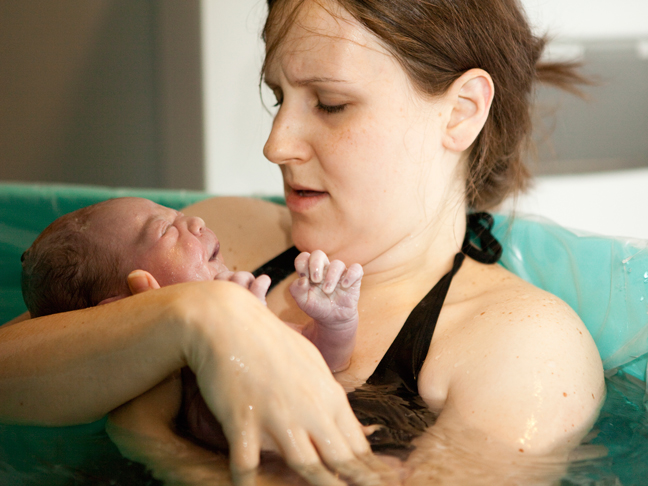When I was pregnant, a home birth was never suggested. My midwife didn’t suggest it, my NCT class didn’t cover it, and we’d just bought a new cream rug for the living room, so…
I was booked into our local country hospital’s birth centre which I felt was the relaxed, semi-hippy alternative to the labour ward, which rather comfortingly was just across the corridor. In the event, I was directed to an ante room to be checked and ended up giving birth in there 45 minutes after my check-up, despite the midwife’s caution that “NOBODY gives birth in here!” I wasn’t up for moving to a pool—I couldn’t care less mid-push.
But a few weeks ago my best friend who is pregnant and living in London was offered the option of a home birth by her midwife. I was really surprised: I know just one woman who decided on one and she requested it. She has now done it twice and loved it, so I know it’s a brilliant thing, but I STILL didn’t expect the news that new NHS practice is to offer this service to more pregnant women.
The National Institute for Health and Care Excellence (NICE) and The Royal College of Midwives have both backed the initiative. With an estimated 45% of women classed as ‘extremely low risk of complications,’ these are the women eligible for a home birth.
My friend was shocked, too. She had always imagined she would be in hospital, with legs in stirrups… you know, the usual.
So what are the benefits to a home birth? I asked doula and active birth instructor, Nikola-Jane Barile.
The woman is in her own environment, which is a huge bonus as she is likely to feel a lot more comfortable and relaxed. That’s essential in helping labour to progress well. It allows the woman to be in control of her birth experience.
What kind of support can you expect?
Usually two midwives will be present at all times, so there is a continuity of care compared to some hospital births, where midwives change shifts.
OK, so being at home with all your creature comforts, privacy and no hospital smell would be pretty great.
But what happens if something goes wrong?
It would be down to the midwife’s judgement if a woman needs to transfer due to some kind of complication. Or it would be the woman’s choice to go if she no longer wanted to labour at home. The main reasons for a transfer are: blood loss after the birth, if baby is slow to breathe, lack of progress in second stage of labour, the need for an emergency caesarean, or a looped umbilical cord.
Happily though, according to the NCT website, a first-time mother has a 70% chance of achieving a home birth if she has planned for one, and for second-time mums, the odds rise to between 88 and 99%. The other thing you’ll have to consider is the relative lack of pain relief. They can bring the gas and air, but an epidural is simply not an option. So bear that in mind. Otherwise, with all the support midwives—and indeed doulas, if you decide to go down that route—will be providing, it does seem like a pretty sweet deal doesn’t it?
What about you? Would you/are you considering a home birth?
image: Getty / ArtisticCaptures








